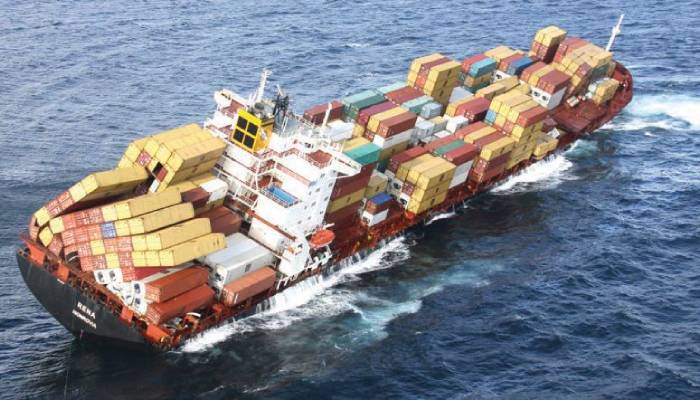
or

In maritime trade, ocean and its constituents like marine life are important aspects. Sometime during the transportation, due to accidents or malfunctioning of equipment of the vessel, it poses threat to the environment and marine life and in most of cases, owner of the vessel is strictly liable and therefore it becomes the subject of public international law. Public International law is the system of law that governs the relation between the one State and the other State and it is influential in resolving disputes related to Maritime as well. Lately we have witnessed many issues like oil pollution, collision etc. between the two States. The court of respective jurisdiction applies the provisions of treaties to which the Member State is bound to. The international organization is established by treaties between States, which usually provide that the organization is to have an independent legal personality.
Every state is a single legal person in the International law, even if it is federal in character like the United States (US), India, Australia or Nigeria or like the United Kingdom (UK). The oldest international organizations are such as the Universal Postal Union in late 19th century and United Nations (UN) and its specialized agencies like the International Maritime Organization (IMO) as well as regional organizations such as European Union (EU), United Nations Convention on Law of the Sea (UNCLOS) or the North Atlantic Treaty Organization (NATO). Each treaties or international organization has its own features for e.g. most of the treaties confers rights on the their States of personality to insist that all other States party to the treaty comply with its provisions but lately the treaties do confer rights directly on individuals (human rights) and companies (investment protection), and it does not automatically follow-unless the treaty specifically provides such a mechanism for it.
Every legal system has different application of the International law, for e.g. the UK court system, if the master of ship is charged with an offence as consequence of collision, the offence before the court will not be described as the contravention of the COLREG convention but the provision of the Merchant Shipping (Distress Signals and Prevention of Collisions) Regulations 1996 under the Merchant Shipping Act 1995 which enacts these rules into UK law.
In the legal system of world, there is no international legislature which can enact laws binding on all states. Therefore, the Court of jurisdiction whose function is to decide the case in accordance with the international law has to refer the article 38 of the statute of the International Court of Justice (ICJ) wherein four types of sources of international law to be applied
This refers to the body of the international rules having their source in the customary practice of States. To be the rule of customary international law, the practice of States must meet two requirements;
The treaty comes under various titles like “protocol”, “convention”, “agreement” etc . UNCLOS is a treaty. The essence of the treaty is that they are agreements between States or international organizations intended by their parties to be binding in international law.
In case of contradiction between the customary source and treaty source, the court can apply the general principals of law common to most or all major legal systems, in order to avoid such undesirable situation of the Court being unable to decide a case.
The judicial decisions play a subsidiary means for determination of rules on international law, especially ICJ judgments.
There are many provisions in various international organization related to the shipping like UNCLOS for the maritime zone of the respective States in accordance with the old and new laws of the sea both for e.g. UNCLOS art 3. has settled the maximum breadth of the territorial sea at 12 nm.
There also many provisions for the Coastal and flag state rights over shipping in the main maritime zones. For e.g. under UNCLOS art. 11 provides that “for the purpose of delimiting the territorial sea, the outermost permanent harbor works which form an integral part of the harbor system are regarded as forming part of the cost” which means that the foreign ships have no general right to enter internal waters.
An attorney should have a sound knowledge of treaties and its types in order to defend its State or any individual of a State for any maritime disputes. The study of sources of the international law of any State is equally important. The modern treaties are now more open for the protection of human rights of individual and accordingly, an attorney can also present its case under the provisions of the conventions along with the common law
Pradeep K Jain is the Managing Partner at Singhania & Co., Mumbai Office, and an expert in Maritime and Corporate Law.
Nalini Mishra - Senior Associate

Lex Witness Bureau

Lex Witness Bureau

For over 10 years, since its inception in 2009 as a monthly, Lex Witness has become India’s most credible platform for the legal luminaries to opine, comment and share their views. more...
Connect Us:


The Grand Masters - A Corporate Counsel Legal Best Practices Summit Series
www.grandmasters.in | 8 Years & Counting
The Real Estate & Construction Legal Summit
www.rcls.in | 8 Years & Counting
The Information Technology Legal Summit
www.itlegalsummit.com | 8 Years & Counting
The Banking & Finance Legal Summit
www.bfls.in | 8 Years & Counting
The Media, Advertising and Entertainment Legal Summit
www.maels.in | 8 Years & Counting
The Pharma Legal & Compliance Summit
www.plcs.co.in | 8 Years & Counting
We at Lex Witness strategically assist firms in reaching out to the relevant audience sets through various knowledge sharing initiatives. Here are some more info decks for you to know us better.
Copyright © 2020 Lex Witness - India's 1st Magazine on Legal & Corporate Affairs Rights of Admission Reserved